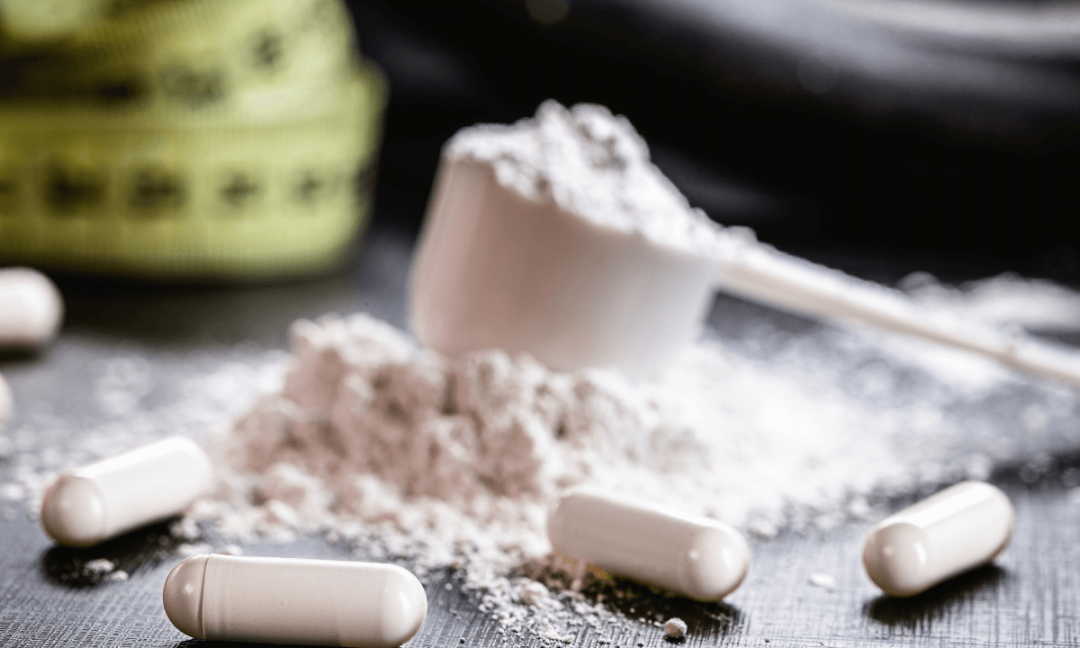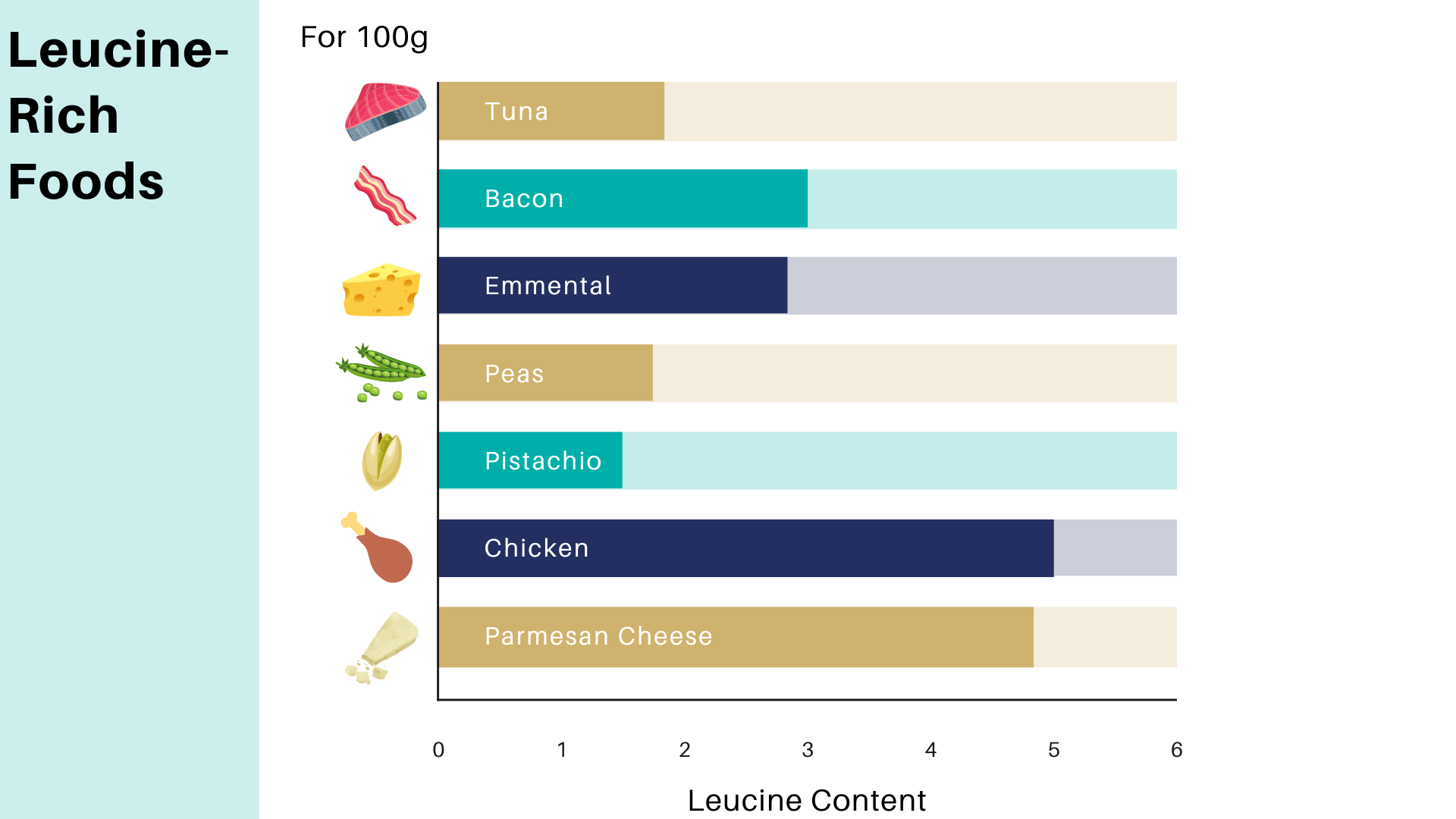
Leucine, an essential amino acid for maintaining muscle mass
Leucine is an essential amino acid. This means that it can’t be produced by the body and must therefore come from our diet. It belongs to the BCAA (Branched Chain Amino Acid) group that includes leucine, isoleucine, and valine. These are used by the body to build muscle and produce energy.
The effect of leucine on muscles
Leucine, known as the ‘signal molecule’, plays a role in activating muscle anabolism. In other words, it stimulates cell proliferation and protein synthesis [1]. A higher concentration of leucine in the blood optimises recovery and protects muscle tissue from catabolism, which can last for hours after exercising.
According to a study by US Army researchers: drinking a leucine-enriched drink during exercise accelerated protein synthesis by 33%, resulting in improved muscle recovery. This study also found that these benefits are not only useful for power athletes, but also for endurance athletes [2].
When consumed as soon as possible after training, leucine helps to reduce muscle fatigue and soreness. Indeed, by triggering protein synthesis, it helps to repair damaged muscle cells.
Leucine helps to reduce muscle fatigue and soreness.
This amino acid does not only have anabolic properties for muscle building, but also anti-catabolic properties to protect existing muscle fibres. By functioning in conjunction with the other BCAAs, leucine helps to assimilate and synthesise proteins. It helps our body to maintain muscle mass, particularly during low-calorie diets [3], and is therefore a valuable aid to weight loss.
According to other scientists, leucine could even help to improve glucose and insulin homeostasis: this means that it could limit hunger pangs and energy slumps when dieting by stabilising blood sugar levels [3].
Consequently, leucine is beneficial not only for athletes and bodybuilders, but for all active people in general, and even for those concerned about their weight, who are seeking to maintain muscle mass during low-calorie diets.
Where can leucine be found?
Leucine can be found in many protein-rich foods.
Like many amino acids, leucine can be found in many protein-rich foods: dairy products, meat, soy, and spirulina. Other foods such as eggs, walnuts, seeds, and fruit also contain leucine but in smaller amounts [4].

Fig 1: Leucine content of different foods [4]
It is also possible to take leucine supplements at mealtimes, in order to absorb the ingested protein more efficiently.
Finally, consuming whey protein-enriched sports nutrition products, which are naturally rich in leucine, is a good way to guarantee adequate intake.
The sports nutrition market is booming, and a wide range of protein products is now available. Bars, powders, drinks… These whey protein-enriched products come in a variety of formats, meaning they can be adapted to individual needs.
At Lactalis Ingredients, our range of native protein ingredients is particularly well suited to sports nutrition. We were the first to delve into the field of native proteins by perfecting a technique for gently extracting whey proteins directly from milk.
Our Pronativ® – Native Whey Protein, is undenatured, and extracted directly from milk through cold filtration. This natural process gives it a nutritional value and characteristics superior to those of traditional whey proteins. Rich in essential amino acids, Pronativ® has a high leucine content, which boosts muscle synthesis and recovery. Different references are available, including an isolate with 95% protein on dry extract, this range is ideally suited to the needs of the sports nutrition market.
We also offer Pronativ® – Native Micellar Casein, a slow digesting protein that minimises muscle wasting during fasting and is a source of calcium. It can be used in a wide variety of products, such as ready-to-drink beverages and cream desserts.
Sources :
[1] 15. Wang X., Proud C.G. The mtor pathway in the control of protein synthesis. Physiology (Bethesda). 2006
[2] Pasiakos SM, McClung HL, McClung JP et al. Leucine-enriched essential amino acid supplementation during moderate steady state exercise enhances postexercise muscle protein synthesis. Am J Clin Nutr. 2011
[3] Donald K. Layman. The Role of Leucine in Weight Loss Diets and Glucose Homeostasis. The Journal of Nutrition, Volume 133, Issue 1, January 2003.
[4] Teneur des aliments en leucine, http://dietgrail.com/teneur-en-leucine-des-aliments/















